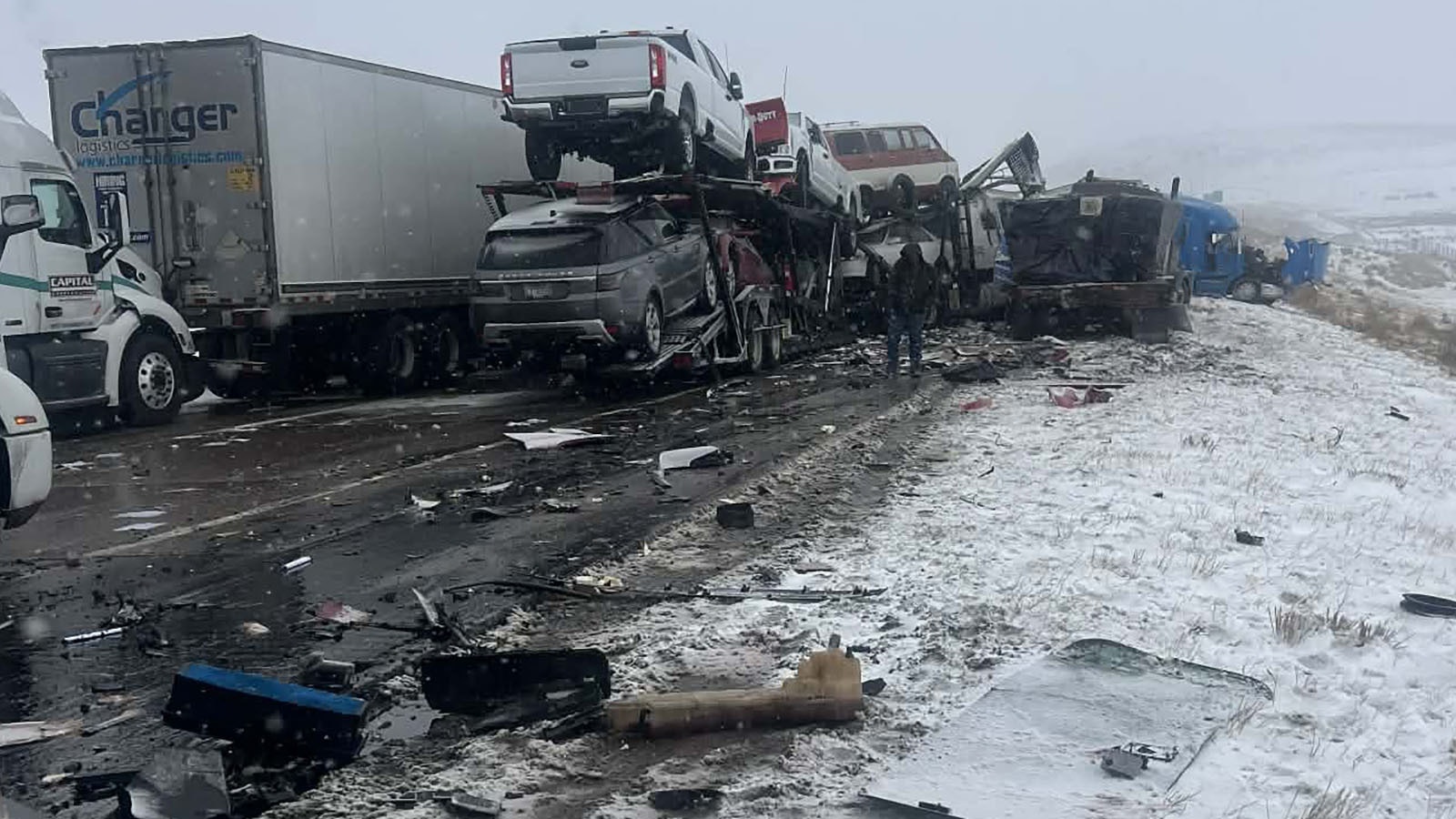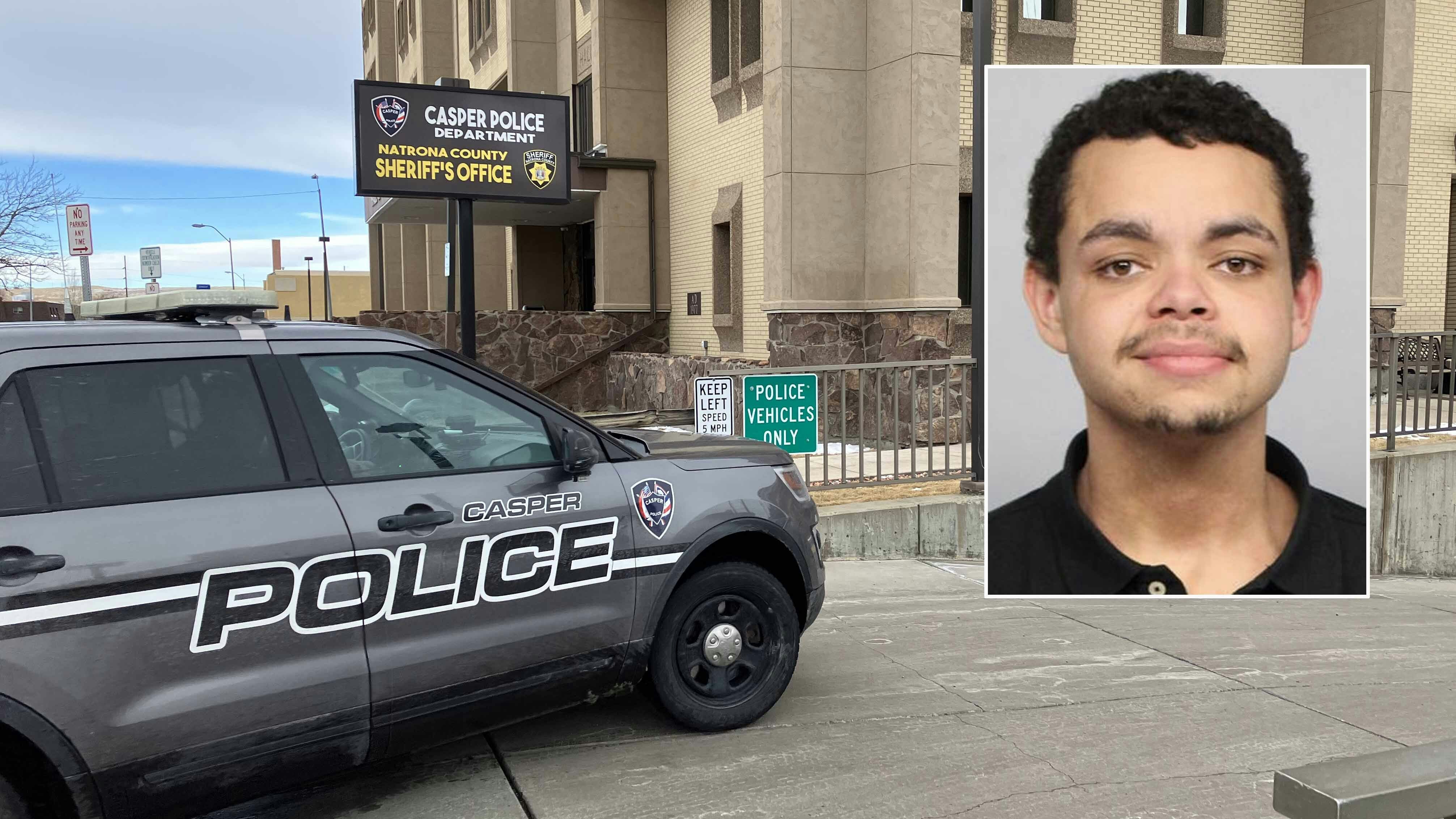The ability to ladder-vault a corner of private property to access landlocked public lands is now the rule across much of the American West, after the U.S. Supreme Court declined Monday to hear a Carbon County landowner’s challenge of the practice.
The case of four hunters who crossed Fred Eshelman’s land — technically held by Iron Bar Holdings LLC — in Carbon County to access a landlocked public parcel started four years ago when the hunters were cited for trespassing.
They won their criminal case at a trial.
When Eshelman’s company then sued the hunters for civil trespass, who won that case at every stage as well, culminating in the 10th Circuit Court of Appeals ruling in the hunters’ favor in March.
After deliberating Friday, the U.S. Supreme Court also sided with the hunters, creating a precedent for corner-crossing in the 10th Circuit, which includes Wyoming.
It also leaves intact other similar language out of the Eighth Circuit, and sympathetic language in the Ninth Circuit.

‘Mixed Feeling'
Though tremendous, the win is bittersweet for the hunters’ attorney, Ryan Semerad of Casper-based firm Fuller and Semerad LLC.
He believes they would have prevailed in Washington, D.C., had the high court chosen to hear the case, and the ability to corner-cross into public lands would have been the law of the land nationwide.
“It’s a mixed feeling (is) the way I’d describe it,” said Semerad. “My client said to me this morning — it feels very much like we were in the ring, we were going to knock 'em out, and (the high court) called the fight.”
But it’s still a victory, he said.
“In the vast majority of what people think of when they think of the West, this is the rule,” said Semerad.
He also reflected on the fact that not one U.S. Supreme Court justice issued a dissent in this denial.
It’s unclear how many justices agreed with refusing to hear this case. They didn’t summon the four justice votes they needed to hear the case. And none of them saw fit to pen a public disagreement with the decision to reject Iron Bar Holdings’ appeal.
The decisive win marks “the end of an era,” said Semerad.
The hunters were first cited in Carbon County almost exactly four years ago on Oct. 4, 2021.
The Argument
The Unlawful Inclosures of Public Lands Act of 1885 (UIA) barred people from extinguishing access to public lands “by whatever means,” the 10th Circuit Court of Appeals acknowledged in March.
In appealing that, Iron Bar Holdings pointed to a 1979 U.S. Supreme Court ruling dictating that the government could not clear a dirt road through private property corners to public land, without compensating the landowners.
“The Tenth Circuit recognized that, under Wyoming law, the hunters had trespassed on Iron Bar’s property,” says the landowner’s appeal petition. “The court nonetheless held that an 1885 federal statute governing fences … implicitly preempted Wyoming law and ‘functionally’ held a ‘limited easement’ across privately-held checkerboard land.”
This would erase billions of dollars in private property value, lead to widespread trespasses and property damage by even the most well-intentioned recreationists, Iron Bar added.
But Iron Bar’s claimed link to the 1979 case was ill-fitting, Semerad argued back in his own brief, since the current case is between private parties, not Eshelman’s company and the government as the older case was.
“Even where a checkerboard landowner exercises bread-and-butter property rights, like building a fence on her land, those rights must yield where they conflict with the UIA by obstructing or preventing entry to public land,” wrote Semerad in his reply brief. “The Tenth Circuit faithfully and correctly applied the UIA.”
Clair McFarland can be reached at clair@cowboystatedaily.com.






